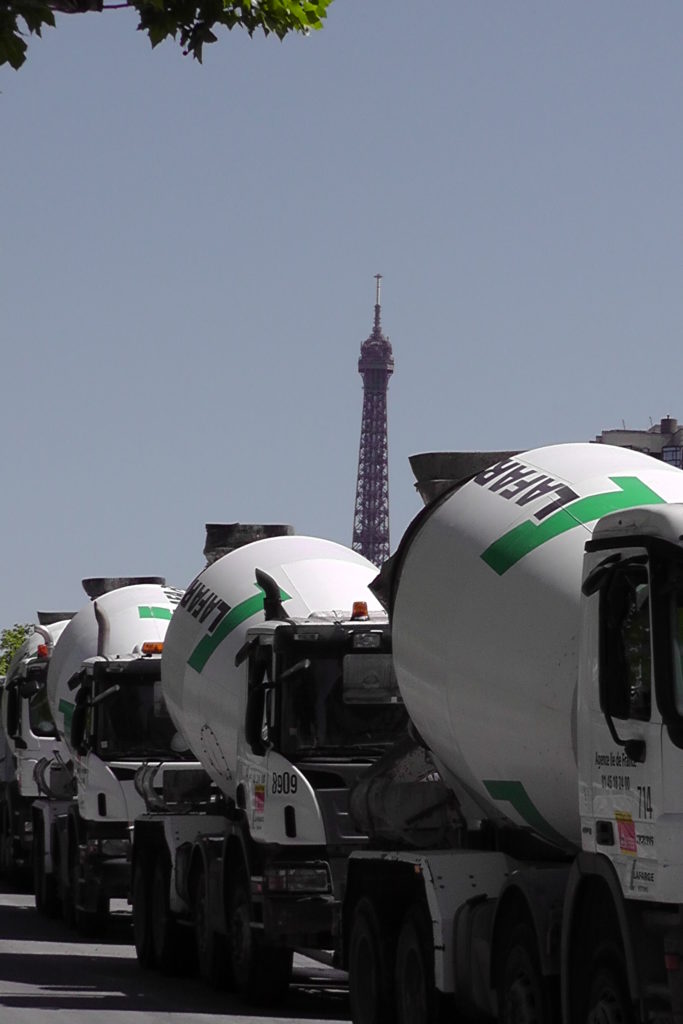
In March 2011, protests against the Assad Regime’s four-decade rule erupted in southern Syria. By the summer of 2012, northern and eastern Syria had become a patchwork of zones controlled by the Free Syrian Army, Kurdish militias, Assad regime loyalists, and terrorist groups, including the self-styled Islamic State of Iraq and the Levant (“ISIL”). Beginning in 2013, ISIL seized control of the oil producing regions of eastern Syria. On June 30, 2014, this campaign culminated in a speech by Abu Bakr al-Baghdadi in Mosul declaring the creation of the Islamic State as a caliphate, with al-Baghdadi as its caliph. By the fall of 2014, ISIL had reached its territorial peak, controlling 41,000 square miles in Iraq and Syria and ruling over 8 million people. It sustained itself economically through oil sales, taxes, looting, smuggling, and extortion.
Against this backdrop, French cement manufacturer Lafarge and its Syrian subsidiary, Lafarge Cement Company in Syria (“LCS”) had opened a large cement factory in Jalabiya in May 2010. At the time, the Jalabiya factory represented Syria’s largest-ever foreign investment outside of the oil sector, worth an estimated $680 million USD. By August 2011, the United States and its European allies had called on Assad to step down and, in response to widespread human rights abuses, imposed sanctions on Syria including an oil embargo. While many European companies scaled down operations or withdrew from Syria, Lafarge decided to continue operations at the Jalabiya factory, even as ISIL took gradual control of the towns and roads surrounding the factory. Between early 2013 and September 2014, internal reports, including a series of leaked emails between LCS and Lafarge management, show that LCS poured approximately 13 million euros into the ISIL treasury in order to ensure the continued operation of its Jalabiya Factory.
In November of 2016, CJA partners Sherpa and the European Center for Constitutional and Human Rights (ECCHR), among others, filed a criminal complaint in France against Lafarge, its Syrian subsidiary, and several senior officers. The complaint led to an internal investigation in which Lafarge admitted that it had “provided funds to third parties to work out arrangements with a number of these armed groups, including sanctioned parties [such as ISIL] in order to maintain operations and ensure safe passage of employees and supplies to and from the [factory].”
These findings led to Lafarge’s indictment by French prosecutors on charges of complicity in crimes against humanity. The Lafarge indictment marked the first time that a parent company has been criminally indicted for crimes against humanity in a national court. Several senior Lafarge employees, including two of its former CEOs, were also indicted on counts of terrorist financing, endangerment of employees, and complicity in crimes against humanity
In July 2021, CJA submitted a report to the French investigative judge, who integrated it in the casefile, drawing on our expertise on crime patterns in Syria, including evidence CJA had collected related to ISIL’s atrocities in the region. The report includes detailed descriptions of ISIL’s contemporaneous activities in Syria while LCS was providing funds to ISIL, including abductions, torture, and summary public executions. Many of these abuses occurred in the same region as the LCS factory and were highly publicized by ISIL itself, in keeping with its ideology. CJA will continue to support our partners as the case progresses.